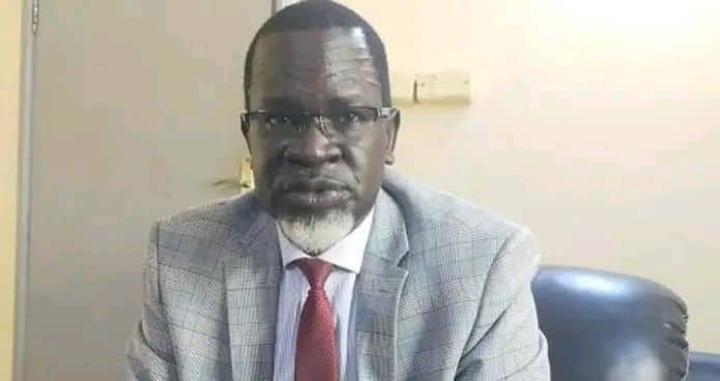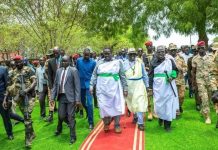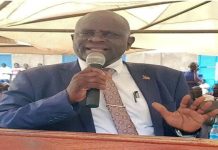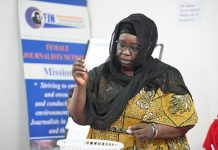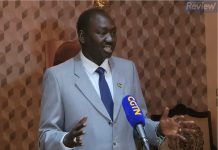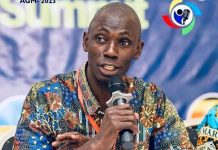John Akoon
Africa-Press – South-Sudan. The Chairperson of the National Constitution Review Commission (NCRC), Dr. Riang Yer, said political party leaders have the responsibility of determining whether to extend the transitional period or amend the new agreement.
Speaking to journalists during the NCRC’s final workshop on key constitutional issues at Juba’s Pyramid Hotel, Riang said the move will not require a new constitution to guide elections in December 2024.
“They (politicians) will decide whether to extend the transitional period or amend the new agreement to reflect the reality that there is no constitution now and that the transition is ending,” Riang said.
According to Riang, the current agreement stipulated that a new constitution would be in place to guide elections, but the process of making the permanent constitution is yet to be completed on time.
“The constitution-making process of course is important because the agreement said that the new constitution must be there to guide the election, but now we know that the end of the transition is within six months of now. And the constitution-making process has not moved toward the finalization,” he said.
“So, we do not want to answer that question, we will leave it to the politicians, or the political leadership council. Because it has a lot to do with the agreement,” he added.
Riang said the NCRC workshop was conducted to prepare the members of the commission to engage the public in making the constitution a people-owned constitution.
He said the workshop sought to address “separation of powers, the concepts of local government, and the independence of the judiciary.” And that they are provided to the members to engage the public on those constitutional issues.
“We know that certain issues are to come up and these are among those we believe would come up when we engage the public. We want the members to be prepared so that any questions regarding those constitutional issues will be tackled by the members and their engagement with the public will produce good results,” he said.
“Some issues are there, things to do with federalism, the division of power between the state and national government, and how the local government would be enshrined into the constitution. Those are the issues that we plan to take to the public,” he added, highlighting that the commission would reach out to the public through boats when there is no accessibility and other means of transport.
“Inaccessibility in the country is indeed a reality, but then, we have a plan in place to use boats, cars, and airplanes, where there is no road. We will use an airplane, where there is no access to the airport and roads, we will use a riverboat those are our plans,” he added.
South Sudan is slated to hold elections in December 2024, but some political party leaders who are signatories to the revitalised peace agreement have stressed the necessity to complete the implementation of the agreement, demanding for a permanent constitution in place before moving to polls.
The First Vice President, Dr. Riek Machar, who is the leader of the main opposition political party SPLM-IO has been consistent about the importance of fully implementing the agreement, emphasising the need for “security sector reforms, refugee repatriation, population census, permanent constitution, and other measures before elections.”
Source: The City Review South Sudan
For More News And Analysis About South-Sudan Follow Africa-Press

